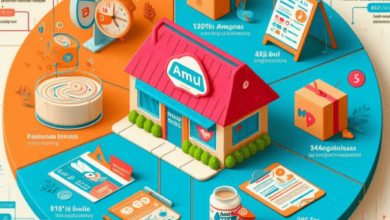
Sugar addiction is a common problem that can have detrimental effects on health. Here, we’ll discuss 30 points highlighting the pros and cons of breaking free from sugar addiction to achieve a healthier diet.
Pros:
- Weight Management: Reducing sugar intake aids in maintaining a healthy weight.
- Blood Sugar Control: Breaking sugar addiction stabilizes blood sugar levels.
- Improved Heart Health: Lower sugar consumption benefits heart health.
- Reduced Risk of Diabetes: Cutting sugar lowers the risk of type 2 diabetes.
- Better Dental Health: Less sugar reduces the risk of dental issues.
- Energy Stabilization: Stable energy levels result from balanced blood sugar.
- Mood Enhancement: Reduced sugar intake can improve mood and mental health.
- Reduced Sugar Cravings: Over time, cravings for sugar diminish.
- Enhanced Taste Perception: A lowered sugar threshold improves taste perception.
- Digestive Health: Less sugar promotes better digestive health.
- Improved Skin: Skin conditions may improve with reduced sugar.
- Increased Hydration: Less sugar encourages more water consumption.
- Better Nutrient Absorption: Reduced sugar supports nutrient absorption.
- Balanced Diet: A diet low in sugar is often more balanced and nutritious.
- Improved Sleep: Lower sugar intake can lead to better sleep quality.
- Stress Reduction: Sugar addiction can contribute to stress; breaking free reduces it.
- Reduced Inflammation: Less sugar leads to decreased inflammation.
- Support for Mental Clarity: Mental clarity and focus can improve.
- Enhanced Taste for Whole Foods: A reduced sugar palate appreciates natural flavors.
- Weight Loss: Breaking free from sugar addiction may result in weight loss.
- Reduced Risk of Fatty Liver Disease: Lower sugar helps protect the liver.
- Lowered Risk of Metabolic Syndrome: Reducing sugar reduces metabolic syndrome risk.
- Heart Disease Prevention: Lower sugar intake decreases the risk of heart disease.
- Improved Immune Function: A sugar-reduced diet supports the immune system.
- Less Risk of Sugar-Related Cancers: Lower sugar intake may reduce cancer risk.
- Improved Long-Term Health: Reducing sugar supports long-term health.
- Balanced Blood Pressure: Blood pressure may normalize with less sugar.
- Digestive Comfort: Reduced sugar can result in less bloating and discomfort.
- Social Support: Joining sugar-free communities provides support.
- Improved Health Education: Learning about the effects of sugar is empowering.
Cons:
- Initial Challenge: Breaking sugar addiction can be challenging.
- Withdrawal Symptoms: Some experience sugar withdrawal symptoms.
- Social Pressure: Social events may not support sugar-free choices.
- Inconsistent Application: Maintaining a sugar-free lifestyle can be inconsistent.
- Taste Preferences: Adapting to lower sugar foods may be challenging.
- Psychological Factors: Deep-seated psychological issues may persist.
- Environmental Stressors: Stressful surroundings can affect sugar cravings.
- Dietary Restrictions: Restrictive diets may harm overall nutrition.
- Cost of Healthier Options: Some healthier choices can be costly.
- Excessive Caffeine: Replacing sugar with caffeine can be detrimental.
- Social Dynamics: Family and cultural eating habits may conflict.
- Inconsistent Social Support: Support for sugar-free choices varies.
- Cultural Constraints: Cultural norms may restrict food choices.
- Time Consumption: Planning and preparing sugar-free meals can take time.
- Inadequate Hydration: Hydration may be overlooked in favor of sugary beverages.
- Chronic Stress: Chronic stress can lead to sugar cravings.
- Social Comparison: Comparing habits with others can be discouraging.
- Emotional Barriers: Emotional issues can hinder sugar-free choices.
- Social Isolation: Isolation can affect adherence to a sugar-free lifestyle.
- Body Image Concerns: Body image issues may persist.
- Nutrient Deficiency: Focusing on sugar-free foods may lead to deficiencies.
- Lack of Awareness: Some individuals may lack awareness of sugar’s impact.
- Processed Food Dependency: Sugar addiction may be linked to processed foods.
- Stressful Work Environments: Work stress may influence sugar consumption.
- Emotional Eating: Emotional eating habits may persist.
- Inadequate Sleep: Sleep patterns affect sugar cravings.
- Dietary Misinformation: Misinformation about sugar-free diets exists.
- Lack of Supportive Resources: Limited support for sugar-free choices.
- Caffeine Dependency: Relying on caffeine can be detrimental to health.
- Physical Health Challenges: Health issues may impact dietary choices.
In conclusion, breaking free from sugar addiction offers numerous benefits for overall health and well-being, but it comes with its challenges, especially in today’s environment where sugary foods and drinks are readily available and heavily marketed. It’s essential to approach this process with commitment, persistence, and a focus on long-term benefits for physical and emotional health. Consulting with healthcare professionals, nutritionists, or support groups can help develop individualized plans for a healthier, sugar-free lifestyle.




